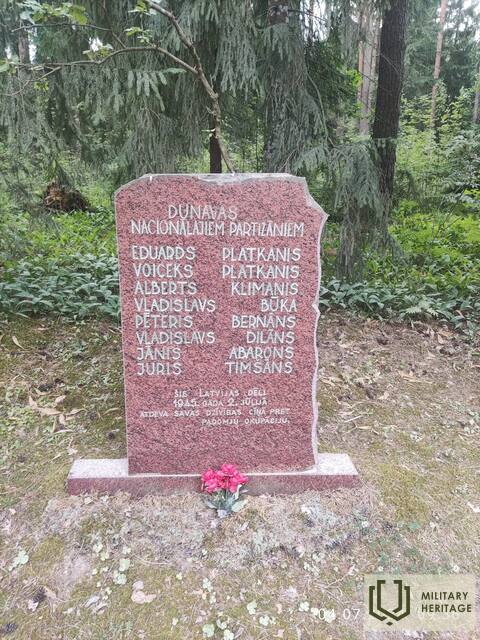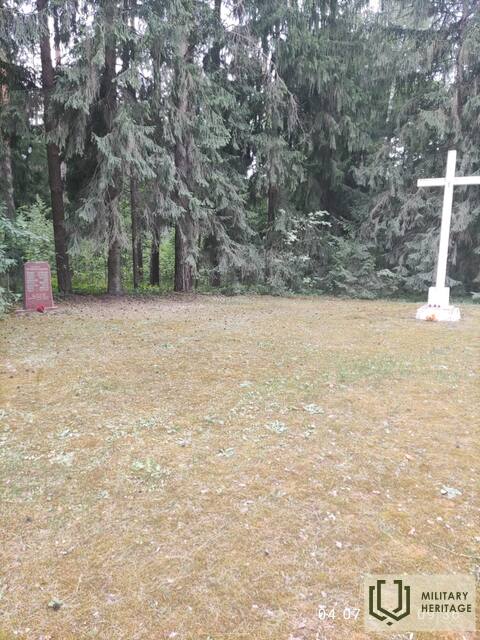Memorial at the site of the July 2, 1945 battle of the national partisans on the Danube
Memorial site


 182
182



Memorial stone to the national partisans Jānis Abaronas, Vladislavs Būkas, Pēteris Bernāns, Alberts Klimanis, Vladislavs Dilāns and Juris Timšāns who fell in the Battle of the Danube on July 2, 1945 and were later burned in Rubene parish.
The Battle of Dunava broke out after two officers of the People's Commissariat of the Interior of the Latvian SSR and one militiaman were killed in clashes between foresters and representatives of the Soviet occupation authorities in Atauga, Dunava parish, on the evening of June 30 and July 1. On July 2, 16 national partisans led by Eduards Platkanis fought a battle with destroyers, militiamen and Cheka troops at the turn of the Rubene road behind the Dunava cemetery. A few days later, in retaliation, the Cheka officers burned down the houses of Atauga, and publicly burned the bodies of six national partisans who had fallen in the Battle of Dunava near the Rubene parish hall.
Used sources and references:
G. Blūzma. The National Partisan War in Sēlija // Resistance Movement against the Occupying Powers in Latvia. Riga: SolVita, 1997, pp. 276-278.
The Unknown War. The Struggle of Latvian National Partisans Against the Soviet Occupiers 1944-1956. 1st ed. Riga: Domas sūks, 2010, p. 365.
Related timeline
Related topics
Related stories
Selija's forest brother settlement in the Sūpe swamp
The Sūpes swamp is associated with the sites of national partisan settlements and battles, which were formed through the interaction of people and places. It is described in the ballad of the exiled Latvian writer Alberts Eglītis about the events in his native Sūpes swamp “In Moss and Mud” - a tribute to the Sūpes swamp partisans:
… “In 1945, as autumn glowed in the swamp -
On Pokļevinskis' birthday, Lieljānis shares at dinner:
Beer fermented in willows,
The Romulans worship butter,
I dry my mother's caraway bread,
Dried ham in March cuts,
And Stuchka's onions,
Ildzeniece cheese.
Rooms in resinous walls
And lightning has struck hearts,
And in eleven souls languish-
"The roots that have rotted in the ground..."
This interpretation of the past, with its post-World War II events, included human testimonies, expressions of spirit, and value systems. It recalls the popular support for the national partisans, whom the occupying power could not defeat so easily.






